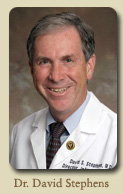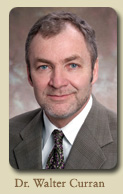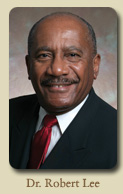



January 2008
Keeping an Atlanta institution open
I know many of you have been following closely the events surrounding Grady Hospital, including the vote in late November by the Fulton-DeKalb Hospital Authority to turn over control of the hospital to a nonprofit board and ensuing discussions to negotiate terms of the agreement to manage Grady and restore its financial viability. To help you keep abreast of this vital issue, I want to call your attention to a recently created Emory-Grady website, http://www.emory.edu/grady/, which includes all the latest developments and Emory’s involvement.
I would like to reiterate a point here that I alluded to in a WABE (90.1 FM) interview back in November (an MP3 file is available). Emory wants to continue to work together with Grady, not only to preserve more than 70 years of history together, but to see Grady continue its public health mission of treating Atlanta’s underserved. We hope this issue can be settled soon to the benefit of all.
TOP
Research transition
 Dr. David Stephens, formerly Executive Associate Dean for Research in the SOM, has been appointed Vice President for Research in the Woodruff Health Sciences Center (WHSC). In this new role, Dr. Stephens will help plan the WHSC’s future research enterprise. He will focus on growth of interdisciplinary research across the WHSC, development of innovative research initiatives and training, and enhancement of strategic themes within the WHSC.
Dr. David Stephens, formerly Executive Associate Dean for Research in the SOM, has been appointed Vice President for Research in the Woodruff Health Sciences Center (WHSC). In this new role, Dr. Stephens will help plan the WHSC’s future research enterprise. He will focus on growth of interdisciplinary research across the WHSC, development of innovative research initiatives and training, and enhancement of strategic themes within the WHSC.
Dr. Stephens will continue to direct the Division of Infectious Diseases in the Department of Medicine, a role in which he has served since 1992. He also is Professor of Microbiology and Immunology in the SOM and Professor of Epidemiology in the School of Public Health. He is principal investigator for Atlanta’s Clinical and Translational Science Award, a multi-institutional research and clinical trials partnership funded this year by a five-year, $31 million NIH grant. In addition, he is known internationally for his research to define the molecular basis for virulence and vaccines to prevent bacterial meningitis.
TOP
Eminent immunologist joins SOM
 Dr. Max Cooper, one of the most influential scientists in the field of immunology, will join the SOM in January as a Georgia Research Alliance (GRA) Eminent Scholar. He will be appointed as a Professor of Pathology and Laboratory Medicine and a member of the Emory Vaccine Center.
Dr. Max Cooper, one of the most influential scientists in the field of immunology, will join the SOM in January as a Georgia Research Alliance (GRA) Eminent Scholar. He will be appointed as a Professor of Pathology and Laboratory Medicine and a member of the Emory Vaccine Center.
“The impact of Dr. Cooper’s many discoveries and insights would be hard to overstate,” says department Chair Dr. Tristram Parslow. “Through his own discoveries and the many other researchers he has trained and inspired, Dr. Cooper’s influence resonates through all of contemporary immunology.”
Dr. Cooper has spent most of his distinguished career at the University of Alabama, where he has been a leader in research on the cellular, molecular, and developmental biology of white blood cells. He is credited with a string of landmark discoveries that now provide an understanding of how these cells combat infections and how they can go awry. He also was a pioneer in developing methods that led to bone marrow and stem cell transplantation.
Among Dr. Cooper’s earliest discoveries was one of the most important organizing principles of the immune system—finding that T and B lymphocytes play separate but complementary roles in defending against infections. He is Emory’s ninth GRA Eminent Scholar.
Dr. Cooper is a member of the National Academy of Sciences and the Institute of Medicine, and he has been a Howard Hughes Medical Institute Investigator.
TOP
New Winship leadership
 Dr. Walter Curran has been appointed Chair of Radiation Oncology in the SOM and Chief Medical Officer of the Winship Cancer Institute.
Dr. Walter Curran has been appointed Chair of Radiation Oncology in the SOM and Chief Medical Officer of the Winship Cancer Institute.
Dr. Curran comes to Emory from Thomas Jefferson University in Philadelphia, where he served as Professor and Chair of the Department of Radiation Oncology at Jefferson Medical College and Clinical Director of the Kimmel Cancer Center. “This is an exciting time in cancer research and treatment, and Emory is leading the way in many areas of research and patient care,” says Dr. Curran.
Dr. Curran’s research focuses on the treatment of aerodigestive and neurologic malignancies, and he has been a principal investigator on numerous NCI grants. He also will continue to serve as the group chair and principal investigator of the Radiation Therapy Oncology Group, an NCI-funded international, multi-institutional cooperative group dedicated to advancing patient treatment and care through clinical trials and research.
TOP
IRB has new leadership
Sarah Putney has been appointed as the new Director of the University’s Institutional Review Board Office. Ms. Putney comes to Emory from the Harvard School of Public Health, where she served as director of Human Subjects Administration for the past six years. She also has taught courses on research ethics and has served as a consultant to the U.S. Department of Health and Human Services’ Office for Human Research Protection.
TOP
Warp speed ahead for Neurology
The Department of Neurology has attracted major attention for more than 15 years, especially since a team led by Dr. Mahlon DeLong, William Patterson Timmie Professor of Neurology and former Chair of the department, was recruited to Emory to broaden its programs in Parkinson’s disease and other movement disorders. One member of that team and a nationally known researcher in his own right, Dr. Allan Levey, took over the helm as Chair in 2003 and has continued to expand the department’s research programs, as these accomplishments from the past year illustrate:
• |
Dr. David Rye, Professor, and other researchers from Emory and Reykjavik, Iceland, identified the first gene associated with restless legs syndrome. The findings appeared in the August 2007 issue of the New England Journal of Medicine. |
• |
Dr. Page Pennell, Associate Professor and Chair-Elect of the National Professional Advisory Board for the Epilepsy Foundation, has published a study in the online edition of Neurology that shows regular monitoring of the level of the epilepsy drug lamotrigine in the blood of pregnant women helps reduce seizure activity and improve the overall health of the mother and fetus. |
• |
Emory University Hospital’s ICU unit received the prestigious 2008 ICU Design Citation Award from the Society of Critical Care Medicine. Dr. Owen Samuels (Neurosurgery), who directs Neuroscience Critical Care, helped design the unit, which is staffed by three neurologists trained as neurointensivists. |
• |
Dr. Jim Lah’s team in the Emory Alzheimer’s Disease Research Center, identified a new protein, LR11, recently linked to Alzheimer’s disease risk. The team showed that LR11 expression is altered in the disease, even at preclinical stages, and that levels of the protein regulate amyloid accumulation in the brain. |
• |
Dr. Jorge Juncos, Associate Professor, is primary investigator of a new clinical trial sponsored by the National Institute on Neurological Disorders and Stroke to determine whether the nutritional supplement creatine can slow the symptom progression of Parkinson’s. |
TOP
Top psych honor
 Dr. Helen Mayberg (Psychiatry and Neurology) recently received the Falcone Prize for Outstanding Achievement in Mood Disorders Research.
Dr. Helen Mayberg (Psychiatry and Neurology) recently received the Falcone Prize for Outstanding Achievement in Mood Disorders Research.
The prize is one of five awards presented to eminent scientists by the National Alliance for Research on Schizophrenia and Depression, the world’s leading charity dedicated to mental health research.
Dr. Mayberg’s studies have led to development of deep brain stimulation for depression in treatment-resistant patients.
A number of the most severely ill patients who received this treatment have shown remarkable antidepressant responses.
TOP
Minority mentor
 Dr. Robert Lee (Associate Dean, Multicultural Student Affairs) has received the Special Recognition Award from the Association of American Medical Colleges’ Group on Student Affairs-Minority Affairs Section for his contributions as an advocate and mentor to minority students and faculty. Thanks to his efforts, the applicant pool is more culturally diverse with stronger academic and extracurricular credentials than ever before.
Dr. Robert Lee (Associate Dean, Multicultural Student Affairs) has received the Special Recognition Award from the Association of American Medical Colleges’ Group on Student Affairs-Minority Affairs Section for his contributions as an advocate and mentor to minority students and faculty. Thanks to his efforts, the applicant pool is more culturally diverse with stronger academic and extracurricular credentials than ever before.
His 13-year-old Summer Science Discovery Camp and Summer Science Academy have graduated more than 650 8th to 12th-grade students, some of whom have gone on to pursue careers in science and medicine.
One student in particular has been with the Science Academy since 7th grade, either as a student or counselor/teacher, and began medical school in 2007.
Thomas J. Lawley, MD
Dean, Emory School of Medicine
TOP
Current Issue • Past Issues • SOM Home
Contact Us • Give a Gift
Copyright © Emory University, 2007. All Rights Reserved